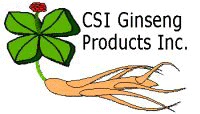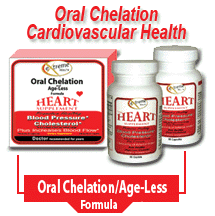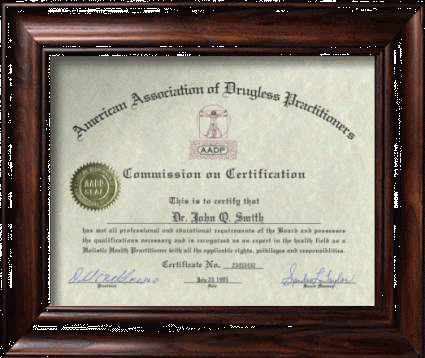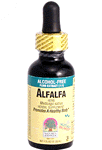MEDICINE
When I meet someone new and they find out that I’m a physician, they frequently ask a health related question. Here are some real questions that I have actually been asked:
- Do you think that I need high colonic therapy?
- Do you think that I should take bee pollen to treat my prostate cancer?
- If you have AIDS and smoke marijuana will you really feel better?
- If I take Ginseng will I have more energy?
- Do I need to take I.V. vitamins?
- Have you heard of a product called Milis® that detoxifies your entire body?
- Suzanne Summers says that I need Bioidentical hormone therapy, what do you think?
- Do you think that I have the right amount of amino acids in my body?
- Did you know that I passed my own gallstones with a kit I purchased at GNC?
- Will chelation therapy prevent a heart attack?
If you think that these questions were intelligent, they were nothing compared to the questions I got once I became a psychiatrist. Here are some mental health questions that I have actually been asked:
*"Prozac causes suicide" is popular to say in the media. Here is the real story: Major Depression causes 90 % of all suicides and people with Major Depression have a life time risk of death by suicide of 15%-20%. Anti-depressants treat depression but it takes weeks to be fully effective. If an individual begins an anti-depressant while deeply depressed their physical symptoms such as energy and motivation usually improve before their cognitive symptoms such as hopelessness. The early stages of treatment when there is improved energy and lingering hopelessness is when the risk of suicide is the highest. Therefore, people often kill themselves after beginning treatment for depression. Psychiatrists are trained to look out for this but other health care professionals, not so much.
- You can't treat depresion with Prozac, can you? Doesn't it cause people to committ suicide?*
- My mother has Alzheimer disease. Does she need to take Native Remedies’ Triple Complex Brain Tonic?

Retail Price: $34.95
Your Price: $26.95- If we talk about suicide with a depressed person won’t it give them the idea to do it?
- Aren’t crazy people violent?
- Isn’t it normal to be depressed if you are old?
It is hard to conclude that Prozac on its own will cause suicide in a seriously depressed individual. There are other cases where the aforementioned series of events was not present and a suicide still happened. It is easy to blame the medication in these situations. Researchers think that maybe Prozac has an activating effect that contributes to the suicide but suicide usually involves many variables. It is often difficult to tease out a single variable such as the medication and point a finger. Many studies have conslusions in this regard that the media has exaggerated.Some of you may be thinking, “Oh, yes, I have that question, too.” Let me be perfectly clear ... THESE ARE SILLY QUESTIONS!! I mean really silly questions. If you are thinking any of them, then you have at least one thing in common with Silly Levystien. YOU’RE SILLY!
But don’t feel bad. Most people are pretty silly when it comes to medicine. For example, the other day my mother said, “If you make sure that your bowels are clean then you won’t be so tired.”
Forget that I’m a doctor, why does she think that my bowels need to be clean? My bowels? You know, the place where my Ship High In Transit lives.
It really is amazing the things that people think and believe with regards to medicine. The first time that I became fully aware of the depth to which people will go to be silly about medicine was during the summer after my first year of medical school. I did a one-month clerkship with a family physician near my home. A man in his forties came in for a routine check up and, to our amazement, he claimed to have passed his own gallstones.
I figured he didn’t really pass his own gallstones and I wondered why the family doctor I was working with was not telling him that he was mistaken. Instead, the doctor kind of ignored it. Not getting much of a response caused the man to escalate his claim. He eventually said, “No, really, I saved my gallstones in a pickle jar and I have them in my refrigerator at home.” Finally, the man was told to bring them in and we would take a look at them.
The next day he came in and waited until we had a moment between patients. When we brought him back to the office he had the nurse retrieve his gallstones from the refrigerator. He placed a pickle jar on the desk and it was empty except for two green blobs on the bottom. There was a general surgeon in our group and we invited him in to render an opinion.
The man explained to us, “While I was in a health food store, I came across a pamphlet that claimed that everyone has gallstones and you should have them removed in order to assure your good health. I purchased a kit for $9.99 that included instructions. It said to eat nothing for three days except fresh fruit and to drink only limejuice. Then, on day three you should drink three tablespoons of castor oil. The kit included a net to place over the toilet to catch whatever comes out.”
Our surgeon opened the pickle jar and started to reach in with a finger when the family doctor said, “Wait!! You might want to use a tongue depressor.”
With a tongue depressor the surgeon smeared the two blobs across the bottom of the pickle jar. He put the jar down and gruffly said, “These aren’t gallstones.”
He left the room but returned almost instantly with a Styrofoam cup. He emptied the cup on the desk and several hard rocks bounced out. He picked one up and bounced it on the desk saying, “See, these are gallstones. They’re hard, like rocks.” With that, the surgeon was gone.
Having believed for nine months that he had passed his own gallstones, the man was not about to let a little thing like reality spoil his fun. He left our office still thinking that he was right and that he had simply failed to convince us that these were, in fact, his gallstones.
Another patient at this same clinic presented with the complaint that his vertebrae were not in the correct alignment. As proof, he produced an x-ray of his entire body. I mean, a five-foot long x-ray of him from head to toe.
Then, he stood in front of us and asked, “Do you think that my shoulders are at different heights?”
Apparently, he had been to a chiropractor that told him his left shoulder was not at exactly the same distance from the floor as his right shoulder. Obviously, this meant that his vertebrae were out of alignment. He was, at least, smart enough to come to us for a second opinion.
These two guys were not insane and there was no secondary gain involved. These were just ordinary guys who were naive enough to believe what they heard or read.
Where did all this non-sense medicine come from?
When I was a junior medical student, I did a rotation in neurosurgery. One day we rounded on a woman in her mid thirties who had a tumor on her forehead that was the size of a Nerf football. It was a tumor of the skull, not of the brain. If it had been removed ten years earlier, when it first started growing, it would have been totally benign. Unfortunately, it was so big now that it was pushing her brain across its midline. This caused her gait to be slightly imbalanced. When she came to the emergency room her chief complaint was, “I’m a little off balance when I walk.”
When we entered her room she was sitting cross-legged on the bed and singing. There was an open book in front of her and two guests were singing with her. She had a big smile on her face and announced to us, “God will save me.” Apparently, she belonged to the local chapter of Jehovah’s Witness and they believe that you should trust all medical problems to the lord.
I thought to myself, “Well, I hope God saves her because I know for a fact that Dr. Barnes won’t.” We cut out as much of the tumor as we could, so she could walk better, but she died within several months.
You might think that these stories are remarkable in some way but in my experience the only thing remarkable about them is how common they are.
Why do people go so far out into “la, la land” when it comes to medicine?
Why would a grown man spend $3,000 to have intravenous chelation therapy?
Why would someone let their seven year old child die rather than receive a blood transfusion?
Why would someone fly to a South American island and pay a large sum of money to get a supply of Laetrile and think that it is going to cure their lung cancer?
Why would anyone think that a real treatment that works would be shunned by the American Medical Association?
Speaking of Laetrile, whatever happened to all those idiots that were pushing that stuff?
Recent Enforcement Actions
On April 20, 2000, the U.S. Justice Department obtained a preliminary injunction barring Christian Bros. Contracting Corp., of Whitestone, New York, and its president, Jason Vale from making or distributing amygdalin, Laetrile, "Vitamin B-17," or apricot seeds [11]. Although Vale signed a consent decree, he continued his sales activity through a network of Internet sites, toll-free telephone numbers, and shell companies. In 2003, a federal jury in Brooklyn found him guilty of criminal contempt for which he is likely to be sentenced to prison [12].
In July 2000., Kenneth N. Michaels and his company, Holistic Alternatives, both of Louisville, Ohio, were indicted for allegedly conspiring to distribute Laetrile and hydrazine sulfate in interstate commerce. The indictment also alleges that with intent to mislead the FDA, the defendants failed to register their drug manufacturing facility [13].
On September 1, 2000, a United States District Court Judge issued a preliminary injunction against World Without Cancer, Inc., The Health World International, Inc. of Bay Harbor Island, Health Genesis Corporation, an Arizona concern that does business in Bay Harbor Island, Florida, and David E. Arizona, an officer of the three corporations. The ruling enjoins the defendants from introducing or causing the introduction into interstate commerce of laetrile products, apricot seeds, or any other unapproved drug product as well as manufacturing, processing, packing, labeling, promoting, or distributing these or any other new drug. The order also requires the defendants to modify their Internet web sites to cease using the web sites to promote the sale of or offer for sale their laetrile products [14].
In February 2004, Jack Edwin Slingluff, D.O., of Canton, Ohio, was charged with introducing an unapproved new drug into interstate commerce. The one-count criminal information states that he "caused thirty (30) vials of the unapproved new drug Amigdalina B-17 (AKA Laetrile) to be shipped from West Palm Beach, Florida, to Salem, Ohio; in violation of Title 21, Sections 331(d), 355(a) and 333(a)(1), United States Code."
Why is there so much crazy medicine out there?
Let me emphasize that I am not ridiculing all forms of alternative medicine. There are many treatments that, for whatever reasons, are not FDA approved but are still beneficial. For example, I often use Melatonin in order to sleep in a new time zone. Also, I mix psyllium in my orange juice every morning to maintain regularity and reduce my chances of getting the colon cancer that killed my father. Would you believe that there are several Meditation CDs on my bookshelf and that I use them on occasion? I even participate in Yoga classes sometimes and I use self-hypnosis techniques when I need to reduce anxiety or deal with pain. I also burn incense and use other aromatherapies for soothing relaxation, and to heighten my sharing love sessions, but you know me.
Because I am a doctor, I have a slight advantage when evaluating any particular treatment but how is an average individual supposed to know what treatments are, or are not, OK?
Well, if I can stop being so cynical for a minute maybe I can actually be helpful. It really isn’t that difficult. The treatments that should be avoided are pretty easy to spot and you don’t have to be a doctor to recognize them. Here are some telltale signs of unreliable forms of alternative medicine:
- Heavy reliance on testimonials.
- Strong claims like "amazing" or "miraculous."
- A single therapy treats many unrelated conditions.
- A Secret formula.
- No reliable information on effectiveness and safety.
- "Time-tested" or "ancient chinese remedy."
- Anti-conventional medicine statements.
- Pseudo-medical jargon like natural, organic, detoxify, balance, etc.
- Claims of effectiveness without side effects.
- Money back guaranty.
The most important thing to consider is the risk to benefit ratio. If it is an inexpensive treatment that is unlikely to cause any harm then the benefit does not need to be great in order to give it a try. On the other hand, if the cost is high or if it requires hospitalization or IV therapy or something else that might be potentially dangerous then the benefit should be clear and substantial to justify the risk.
In addition to these telltale signs of bad therapies, here are some additional points that are important to remember:
- MDs and DOs should be your primary source of medical care.
- Most MDs and DOs are not very knowledgeable in regards to alternative therapies.
- Good alternative healers work closely with MDs and DOs.
- Some effective therapies are not regulated.
- Alternative medicine is a billion dollar a year industry.
Why is all this holistic and alternative stuff so popular right now, is it new?
Of course it isn’t new. Don’t you remember the traveling medicine man in the old west? He was selling a bottle of ethyl alcohol but he claimed it cured every ailment. And, you know what, it did.
What about a little further back than that, like all the way back to Hippocrates in the fourth century. Do you think he had selective serotonin reuptake inhibitors available to him? He did not but he was, nevertheless, the first to advocate organic (or physiologic) causes of medical conditions.
In fact, by advocating organic treatments Hypocrites was a relative charlatan in his day. Have you ever heard of Hypocrites’ wandering uterus theory? Women are prone to having psychological symptoms because their uterus, or hystera in Greek, wanders around in their body and gets stuck somewhere. Thus, he coined the term “hysterical illness.” Aretaeus of Cappodocia describes Hippocrates’ wandering womb theory like this:
In women, in the hollow of the body below the ribcage, lies the womb. It is very much like an independent animal within the body for it moves around of its own accord and is quite erratic. Furthermore, it likes fragrant smells and moves toward them, but it dislikes foul odors and moves away from them… When it suddenly moves upward [i.e., toward a fragrant smell] and remains there for a long time and presses on the intestines, the woman chokes, in the manner of an epileptic, but without any spasms. For the liver, the diaphragm, lungs and heart are suddenly confined in a narrow space. And therefore the woman seems unable to speak or to breathe. In addition, the carotid arteries, acting in sympathy with the heart, compress, and therefore heaviness of the head, loss of sense perception, and deep sleep occur… Disorders caused by the uterus are remedied by foul smells, and also by pleasant fragrances applied to the vagina… –Medical Writings 2.11.1-3
I doubt that Hippocrates ever successfully treated anyone with any real physiologically based treatment. In regards to treating woman, I’m certain that applying aromatic oils to a woman’s vagina was not an effective treatment. However, I bet it made the girls feel pretty good. And I bet he did it a lot, what do you think? Also, if he claimed that he didn’t do it for monetary gain, I would believe him.
In the fourth century there were a lot of other guys that were successfully treating patients with placebos, herbs, and sponge baths, so I would have advised a fourth century man not to go to Hippocrates.
“Are you saying that alternative treatments actually work?”
Yes.
“Now, I’m really confused. How can a treatment that does nothing actually work?”
There are several answers to that question:
First, between 25% and 75% of patients seek help for symptoms that have no physiological basis. Even patients with real illness often present with a lot of psychological symptoms in addition to their physiological condition.
Second, the placebo effect successfully treats patients regardless of whether they have physiological or psychological illness.
Third, lots of patients have episodic conditions that will improve no matter what you treat them with.
Fourth, and finally, who says the treatment does nothing? You don’t need a physiologically active treatment in order to alter brain chemistry. I can do it simply by saying the right words.
For example, I can call you a “Bonehead” and regardless of whether or not you are in fact, a Bonehead, I have caused chemical changes in your brain. These changes will result in increased blood pressure and heart rate. I have also caused changes in your brain that will affect your behavior. You might beat the crap out of me. (If you really want to see some amazing brain chemistry and behavioral changes then just find a bitch and call her a bitch.)
There does not need to be a direct injection of a chemical into the brain in order to alter brain chemistry. That is why a sugar pill, if given with a strong enough suggestion, can actually relieve a person’s real pain from a real broken leg. The right suggestion can cause the brain to increase naturally occurring endorphins (narcotics or morphines) that will reduce the pain.
A great example of this is the fact that some people are suggestible enough that you can actually perform major surgery on them with no anesthetic at all. Prior to the procedure the person enters a hypnotic trance and this trance is deep enough to create adequate sedation.
You might think it would be catastrophic if the patient woke up from the trance in the middle of the procedure, but you would be wrong. A trance such as this cannot be inflicted on a person without their consent. The patient totally knows and understands what is going on and has practiced to be able to do it and wants to do it. If awakened in the middle of the procedure the anesthetic effect will not simply vanish because the patient wants to believe it very badly, and therefore he can.
I guess my point is that alternative medicine often has a grain of truth and some of it is actually reasonable. Some of it is even reasonable in ways that you might not have understood or in ways that are counter-intuitive.
My other point is that alternative medicine is very lucrative and poorly regulated. People don’t want to die and are scared to be sick and are, therefore, susceptible to believing anything. If they perceive that you are a healer they assume that you are altruistic. A good charlatan can make a lot of money by creating paranoia and pretending to care.
Join thousands of GCNM students and graduates who are well on their way to a healthier life and a successful career in the next trillion dollar industry!
I feel so ashamed. I said that it was a billion dollar industry. I stand corrected.
“I am still amazed
that in the scope of things,
there is still so much to learn
and I know so little.”
Ray A. Welch, GCNM MH Student Of approximately 30 testimonials on the GCNM web site, this was the only one that I believed.
I kept seeing the phrase “Board Certified” on a lot of alternative medicine web sites. I remember going to college for four years and medical school for four years and residency for another four years and then going to Austin and taking a test every day for a week in order to become “Board Certified.” I don’t remember any questions on the test about Chelation therapy or I.V. vitamins or ginseng. I began to wonder where all these alternative folks were getting certified.
I found the initials AADP behind the name of this guy who claimed to be on faculty at the Global College of Natural Medicine. By the way, “What in the hell is natural medicine?”
I guess that begs the question, “What is un-natural medicine ?”
If you come to me with a heart condition and I treat you with digoxin, which is a plant called digitalis lanata, and you live ten more years than you would have otherwise, then I have somehow practiced medicine that is not natural?
Maybe that kike Frankenstein was a practitioner of un-natural medicine but I’m pretty sure that everyone who graduated from the University of Texas Medical Branch practices medicine that you would have to call “natural,” if the word means anything at all.
What does it really mean for something to be natural?
Things That Are Natural
According to Levystien
- Cyanide
- Arsenic
- Cocaine
- Alcohol
- Chloroform
- Lead
- Strychnine
- Carbon Monoxide
- Iodine
- Mercury
Obviously, all the things on this list are perfectly safe for human consumption because they are all 100% natural.
(For those of you who are boneheaded enough not to catch my sarcasm, please don’t consume anything on this list unless instructed by a physician with a real degree.)In any case, AADP stands for American Association of Drugless Practitioners.
I’m impressed that they use the term “drugless” as this sounds pretty reasonable compared to all those terms like “natural” and “organic.” Speaking of organic, doesn’t that just mean that it contains a hydrocarbon ring?
•
As I was doing research for this chapter I felt compelled to attend a course in alternative medicine. I have always felt like there might be an herb or two that had escaped my education and the ads look pretty good. I saw that the GCNM had a course of study in herbal medicine. After completing it you could receive the title, Master Herbalist. Hmmm … sounds pretty good. Let me see how to do this. You simply join the Global College of Natural Medicine and sign up for the Herbal Therapy Program. OK, that sounds easy enough.
Course Title Master Herbalist Home-Study Program
Course Duration 500 hours (You have 12 months to complete this program.)
Pre-Requisites Applicants who do not hold a High School Diploma or Equivalent will be required to pass a basic entrance exam that will demonstrate their knowledge of English and basic math. If you do not hold a High School Diploma or Equivalent you can still enroll online today. Once you've completed the online enrollment form, you will be taken to the online entrance exam page. Please don't let this entrance exam make you nervous as you will have an opportunity to see your score before submitting the results to admissions and you can retake the exam as needed. You will be required to obtain a 60% passing grade. If you are enrolling by mail or fax, you can still complete the entrance exam online or request a hard copy by calling 1-800-605-6520. To see a sample of the entrance exam, please click here. (Please do not fill this form out if you do not wish to enroll.)
Further Studies 80% of the tuition paid for this course can be applied towards the Holistic Health Practitioner Program.
Tuition fee including study materials: $1,880.00 Discount: -$500.00 Course with discount: $1,380.00 Enrollment fee: $75.00S&H: $20.00 - US shipping fees are applicable for the continental US only. Total Price: $1,475.00
It’s nice that they will allow you to be a Master Herbalist even if you failed to graduate high school. I’m thinking that $1,475.00 and 500 hours of training is a little much for something I could learn in one afternoon at the library. Perhaps they cater to people who failed to graduate high school in order to ensure that their clients are stupid enough to do this.
OK, I know that by now everyone is probably tired of me being so arrogant. You are likely thinking that instead of calling himself Stupid Levystien he should call himself Arrogant Levystien. And you’re probably right. I obviously think that I’m pretty smart and everyone else is dumb. But just because I think that, doesn’t mean it isn’t true.
At this time I would like to make a point that you may not have seen coming. Even though I make fun of alternative medicine, I frequently advise people to do it. I even fail to point out to people how silly they are for believing it.
In reality, lots of people use treatments that are not physiologically active and these treatments work. If I can make them understand that these treatments don’t work then they won’t work. Why would I want to do that?
My fiancés mom, who went to New York to meet an Asian guru and who spent $200 for a $4.99 bottle of Ginseng, takes her medicine every day and feels a lot better. I guess that she is like one of Hippocrates’ women. Well, maybe not exactly the same. Oh, no, I think that I just made myself rather ill. I Think I’ll take some Alfalfa Leaf to calm my stomach.
In reality, it has been therapeutic for me to write this chapter because I can finally say all these things out loud for the first time. Also, I can truly say that as a result of all my years of study I have learned one very important thing about medicine:
“The most powerfully medicinal thing that you can do is to find out what people want and then advise them to do it.”
That may be the best medicine of all.






